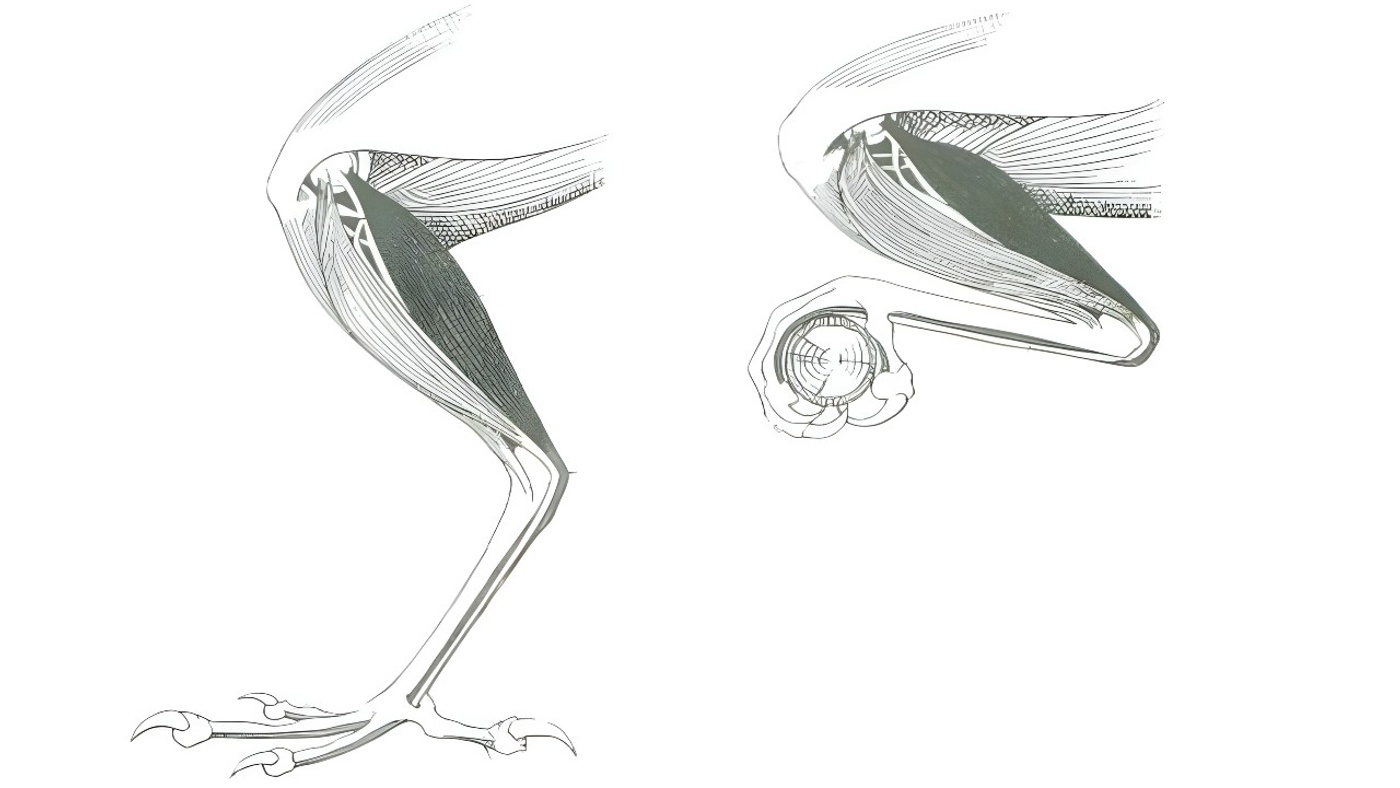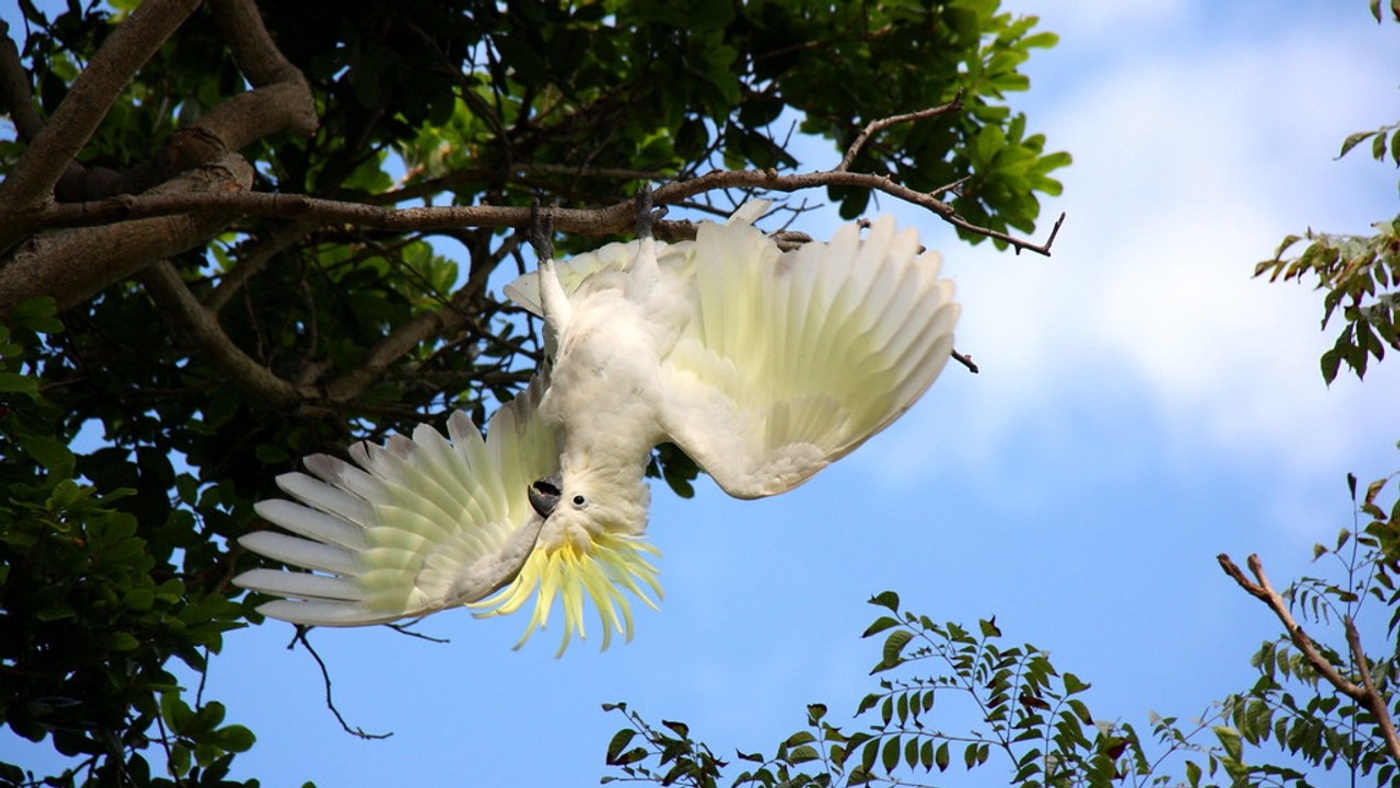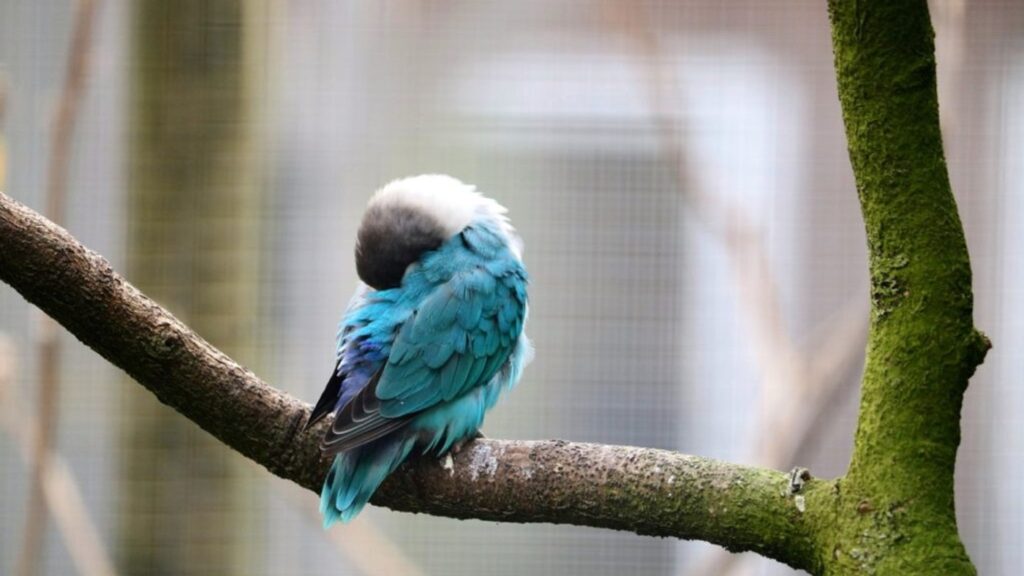We are familiar with animals that sleep in trees, such as koalas, pandas and monkeys. But these animals can hold on tightly to trees thanks to their strong arms. What about the birds? They don’t have muscular arms to cling to branches, so how is it that they can sleep safely even on thin branches? This interesting ability of birds is made possible by an‘automatic perching mechanism‘.

When birds land on a branch, they cling to it by crouching slightly with their legs and automatically bending their claws. This process is triggered by bending the bird’s knee and ankle and stretches the tendons. As a result, the bird’s toes are locked and this keeps them balanced on the branch. This locking is made possible by the friction created by the rough surface of the tissue covering the tendon.
Birds’ Versatile Abilities

This mechanism is used not only for sleeping but also for performing various movements. For example, parrots can hang upside down or birds of prey can hold their prey firmly in the air. This ability also helps birds to climb, swim and hover. This characteristic of birds is one of the most important features supporting their way of life and is of great interest to birdwatchers.

Source: Science ABC , Ornithology


